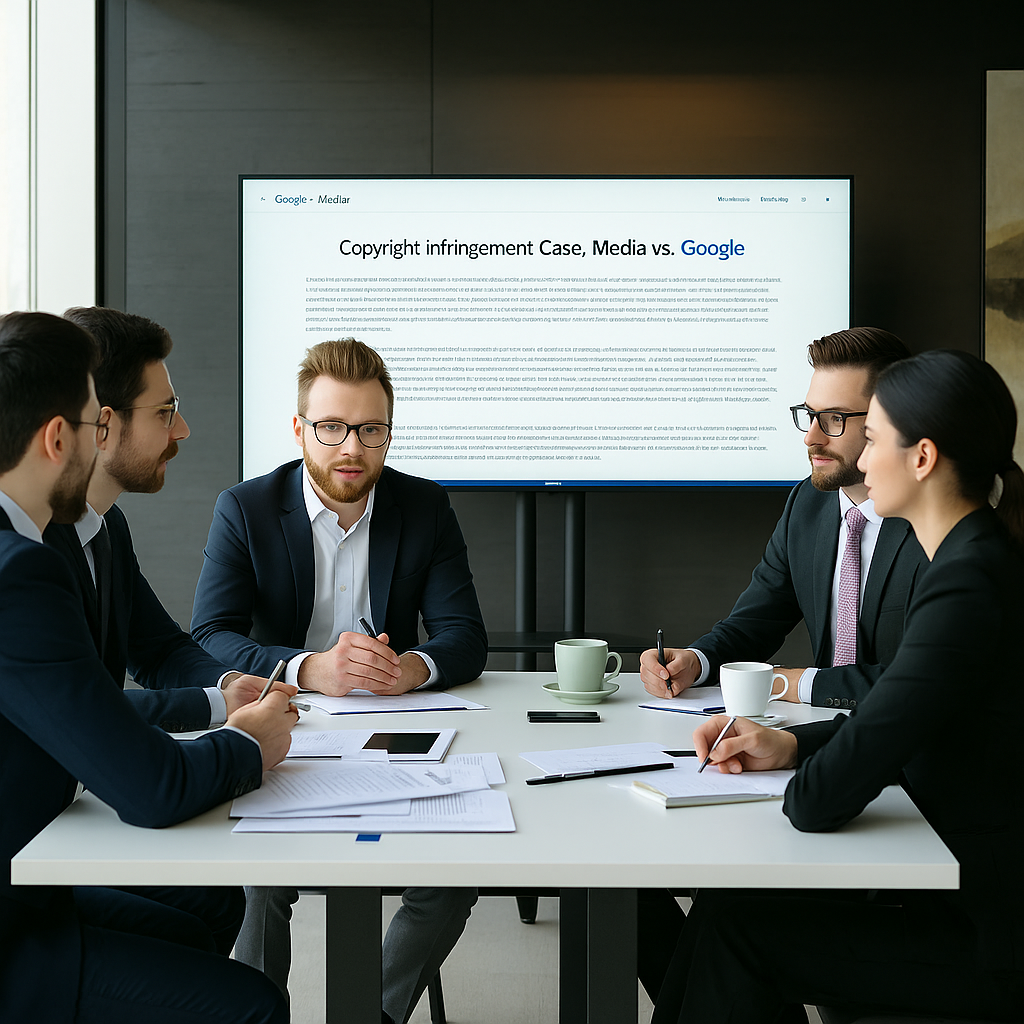Penske Media Sues Google Over AI-Generated Content Summaries
Penske Media Corporation has filed a lawsuit against Google, accusing the company of using artificial intelligence to create article summaries that infringe on the copyrights of Penske’s publications. The complaint alleges that Google’s AI systems generate overviews of articles without permission, repurposing original journalistic work without proper attribution or compensation. Penske claims this practice undermines the value of original journalism and threatens the sustainability of their business.

Legal Claims and Copyright Concerns
The lawsuit centers on the allegation that Google’s AI tools produce summaries by directly drawing from Penske’s original content without authorization. These AI-generated overviews replicate the substance and structure of the original work, bypassing human editorial input and licensing agreements. Penske argues this amounts to copyright infringement and diminishes the value of their journalism by distributing derivative content without compensation or credit.
This case highlights the tension between emerging AI technologies and existing intellectual property laws, which were not designed to address automated content creation. It raises questions about how to protect content creators’ rights while allowing technological progress in AI-driven content generation.
Impact on Media Companies and Market Dynamics
Penske asserts that Google’s dominant position in the U.S. search market—controlling roughly 90%—enables it to leverage publishers’ content without licensing agreements. The AI-generated summaries appear prominently in search results, diverting traffic from original news sites and reducing advertising revenue and subscription opportunities for publishers such as Rolling Stone, Billboard, and Variety.
The lawsuit points to a significant decline in affiliate revenue, partly attributed to AI Overviews appearing in about 20% of searches linking to Penske’s sites. Penske contends that Google’s practice effectively forces publishers to provide valuable content for free, undermining their ability to monetize their work.
Google’s Response and Industry Reactions
Google defends its AI Overviews as tools designed to improve user experience by offering concise information and directing users to a variety of sources. The company denies wrongdoing, stating these summaries complement rather than replace original content.
However, media groups and industry observers criticize Google for not engaging in licensing deals for AI-generated content, unlike other companies in the AI space. This dispute raises broader questions about the responsibilities of dominant platforms when using original journalism and how intellectual property rights should be respected in the age of AI.
Broader Legal and Ethical Implications
The outcome of this lawsuit could set important precedents for how AI-generated content is treated under copyright law. A ruling in favor of Penske may lead to stricter regulations on the use of copyrighted material in AI training and deployment, potentially requiring licensing agreements or new standards for attribution and compensation. Conversely, a ruling favoring Google might encourage wider use of AI to repurpose existing content, reshaping the economics of media production and distribution.
This case underscores the need for clearer guidelines to balance innovation with respect for original reporting, ensuring creators receive fair recognition and reward while enabling technology to enhance information access.
Frequently Asked Questions
What is the core issue behind the lawsuit?
Penske alleges that Google’s AI systems generate article summaries by extracting and rephrasing content from their original publications without permission, infringing on copyrights by closely mirroring the substance and structure of the original work.
How do AI-generated summaries affect media companies?
These summaries divert traffic away from publishers’ websites, reducing advertising revenue and subscription opportunities. Google’s dominant search market share allows it to feature these summaries prominently, pressuring publishers to provide content for free.
What are the broader implications for technology and content creators?
The case raises challenges about protecting intellectual property rights when AI can replicate and repurpose content at scale. It may influence future regulations on AI use of copyrighted material and standards for licensing and attribution.
How has Google responded?
Google maintains that AI Overviews enhance user experience by providing concise summaries that guide users to various sources. The company denies wrongdoing, emphasizing that these tools complement original content.
—
This lawsuit highlights the evolving legal and ethical challenges posed by AI-generated content summaries and their impact on journalism, intellectual property, and digital media economics.













.png)

